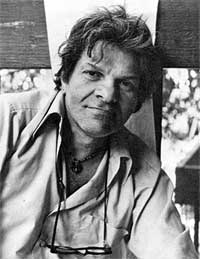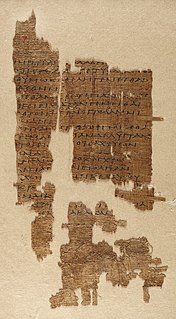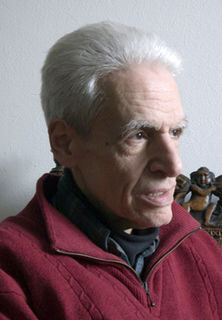Related Research Articles

Irwin Allen Ginsberg was an American poet and writer. As a student at Columbia University in the 1940s, he began friendships with William S. Burroughs and Jack Kerouac, forming the core of the Beat Generation. He vigorously opposed militarism, economic materialism, and sexual repression, and he embodied various aspects of this counterculture with his views on drugs, sex, multiculturalism, hostility to bureaucracy, and openness to Eastern religions.

"Howl", also known as "Howl for Carl Solomon", is a poem written by Allen Ginsberg in 1954–1955 and published in his 1956 collection Howl and Other Poems. The poem is dedicated to Carl Solomon.

Gregory Nunzio Corso was an American poet and a key member of the Beat movement. He was the youngest of the inner circle of Beat Generation writers.

"Ode to a Nightingale" is a poem by John Keats written either in the garden of the Spaniards Inn, Hampstead, London or, according to Keats' friend Charles Armitage Brown, under a plum tree in the garden of Keats' house at Wentworth Place, also in Hampstead. According to Brown, a nightingale had built its nest near the house that he shared with Keats in the spring of 1819. Inspired by the bird's song, Keats composed the poem in one day. It soon became one of his 1819 odes and was first published in Annals of the Fine Arts the following July. The poem is one of the most frequently anthologized in the English language.

The Sapphic stanza, named after Sappho, is an Aeolic verse form of four lines. Originally composed in quantitative verse and unrhymed, since the Middle Ages imitations of the form typically feature rhyme and accentual prosody. It is "the longest lived of the Classical lyric strophes in the West".

Anne Waldman is an American poet. Since the 1960s, Waldman has been an active member of the Outrider experimental poetry community as a writer, performer, collaborator, professor, editor, scholar, and cultural/political activist. She has also been connected to the Beat poets.
Fulcrum Press was founded in London in the mid-1960s by medical student Stuart Montgomery and his wife Deirdre. Montgomery later became an eminent psychiatrist and expert in depression. Earning a reputation as the premier small press of the late 1960s to early '70s, Fulcrum published major American and British poets in the modernist and the avant-garde traditions in carefully designed books on good paper. The Fulcrum Press made a significant contribution to the British Poetry Revival and was one of the best known little presses of the period, recognized for publishing the works of Modernist poets including Ezra Pound, Basil Bunting, Allen Ginsberg and Roy Fisher.
"Kaddish" also known as "Kaddish for Naomi Ginsberg (1894–1956)" is a poem by Beat writer Allen Ginsberg about his mother Naomi and her death on June 9, 1956.
Barry MacSweeney was an English poet and journalist. His organizing work contributed to the British Poetry Revival.

Peter Anton Orlovsky was an American poet and actor. He was the long-time partner of Allen Ginsberg.

The City Lights Pocket Poets Series is a series of poetry collections published by Lawrence Ferlinghetti and City Lights Books of San Francisco since August 1955.
The Smokey the Bear Sutra is a 1969 poem by Gary Snyder which presents environmental concerns in the form of a Buddhist sutra, and depicts Smokey as the reincarnation of Vairocana Buddha. Snyder composed the poem in one night for a February 1969 Sierra Club Wilderness Conference, at which he distributed the first copies. It was later performed during the first Earth Day celebrations in 1970. A note at the end of the poem states that it "may be reproduced free forever" thus dedicating it to the public domain, and it has since been widely disseminated in print and electronic forms.

Howl and Other Poems is a collection of poetry by Allen Ginsberg published November 1, 1956. It contains Ginsberg's most famous poem, "Howl", which is considered to be one of the principal works of the Beat Generation as well as "A Supermarket in California", "Transcription of Organ Music", "Sunflower Sutra", "America", "In the Baggage Room at Greyhound", and some of his earlier works. For printing the collection, the publisher Lawrence Ferlinghetti, another well-known poet, was arrested and charged with obscenity. On October 3, 1957, Judge Clayton W. Horn found Ferlinghetti not guilty of the obscenity charge, and 5,000 more copies of the text were printed to meet the public demand, which had risen in response to the publicity surrounding the trial. "Howl and Other Poems" contains two of the most well-known poems from the Beat Generation, "Howl" and "A Supermarket in California", which have been reprinted in other collections, including the Norton Anthology of American Literature.

Eddie Woods is an American poet, prose writer, editor and publisher who lived and traveled in various parts of the world, both East and West, before eventually settling in Amsterdam, Netherlands, where in 1978 he started Ins & Outs magazine and two years later founded Ins & Outs Press. He was born on May 8, 1940 in New York City.

Samuel Boyse was an Irish poet and writer who worked for Sir Robert Walpole and whose religious verses in particular were prized and reprinted in his time.

Howl is a 2010 American film which explores both the 1955 Six Gallery debut and the 1957 obscenity trial of 20th-century American poet Allen Ginsberg's noted poem "Howl". The film is written and directed by Rob Epstein and Jeffrey Friedman and stars James Franco as Ginsberg.
Symphony No. 6, also known as the Plutonian Ode Symphony, is a symphony composed by Philip Glass. It is based on the poem Plutonian Ode by Allen Ginsberg; parts of which are sung by the soprano soloist in the work. The symphony was commissioned by Carnegie Hall in honor of Glass' 65th birthday and as a vehicle for the talents of soprano Lauren Flanigan. The symphony premiered on February 2, 2002, at Carnegie Hall with Dennis Russell Davies conducting the American Composers Orchestra. The symphony is in three movements, based on the three parts of the poem itself.
"September on Jessore Road" is a poem by American poet and activist Allen Ginsberg, inspired by the plight of the East Bengali refugees from the 1971 Bangladesh Liberation War. Ginsberg wrote it after visiting the refugee camps along the Jessore Road in West Bengal in India. The poem documents the sickness and squalor he witnessed there and attacks the United States government's indifference to the humanitarian crisis. It was first published in The New York Times on November 14, 1971. Further to topical songs by George Harrison and Joan Baez, the poem helped ensure that the Bangladesh crisis became a key issue for the youth protest movement around the world.
References
- ↑ Allan Kozinn (February 6, 2002). "MUSIC REVIEW; Happy, Happy, Happy Birthday". The New York Times .